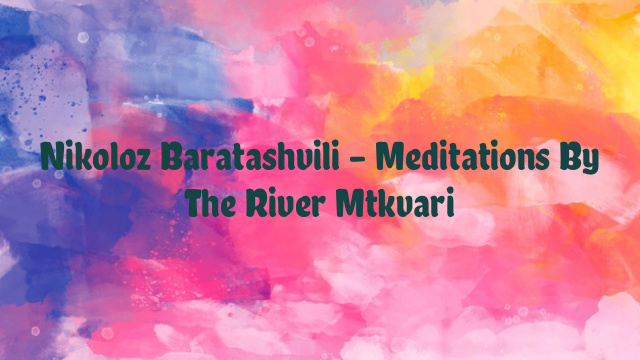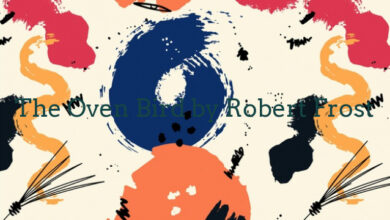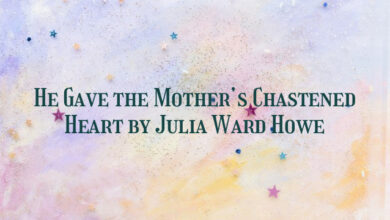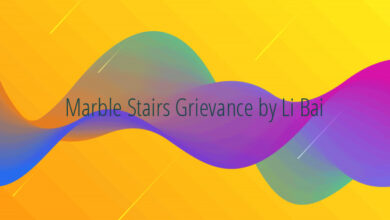
Nikoloz Baratashvili – Meditations By The River Mtkvari
In sadness wrapped, I strolled along where the waters hum and fret;
I longed to rest in solitude and all my cares forget.
And there beside the flowing stream, in utter weariness,
I sank upon the soft green grass and wept in bitterness.
Borne on the sigh that silence heaves the Mtkvari’s murmur rose,
And in its lucid beds the azure skies found sweet repose;
And here beyond the strife of life, beyond all sordid noise,
The mountains brooded over the land in calm unvarying poise.
I listened to the river’s hum, I saw the heavens bend
And kiss the mounts that with my soul and sorrow seemed to blend.
What means your purl, O Mtkvari old, forebodes it joy or woe?
You are witness true of bygone days, yet hum in speechless flow.
But why this life of maddening strife, if all its visions fair
Are bubbles light, illusions bright, that burst and fade forever?
Our life is but a passing dream in a fleeting hectic world.
A never-filling boundless chaos, wherein our hopes are hurled.
The mortal heart, though sate and full is a slave of surging fires,
That blast the soul and steep the heart in avariced desires.
Even sovereigns great whose wealth and power is the wonder of the day
Feel greed and envy stir their breasts for realms that others sway.
They crave and strive for more and more, and their impassioned lust
Is for that earth wherein they’re doomed to mingle with its dust.
Or does the king who for his noble deeds knows only praise
Know peace amid the storms or cares that darken all his days?
The welfare of his native land and heirs brings him delight;
His aim in life’s to keep the honor of his country bright.
If death holds glory in its power and the world to void is whirled,
Then on whose lips will lie the sin and glory of the world?
If mortals of this world we are and bear the form of man,
Our duty is to serve our land and walk the ways of man.
Unworthy is the one who’s but a mass of worthless clay,
Who dares to shun all mortal cares, yet in this world does stay!




